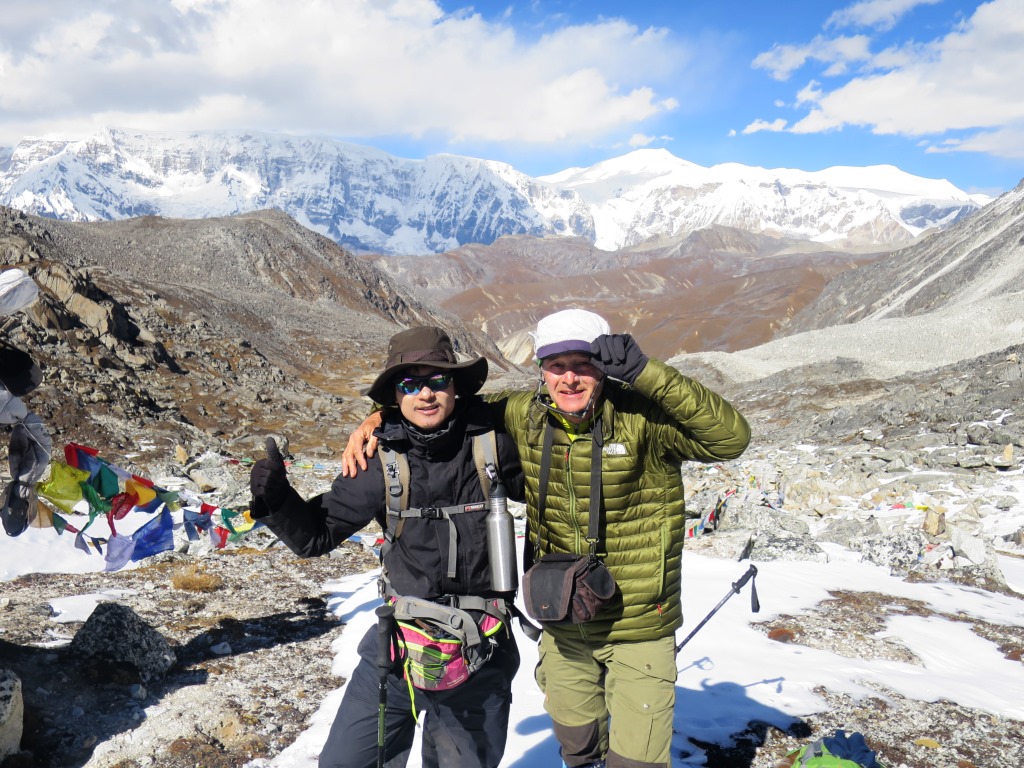An interview with Mr. Joe Hoffmann, our first snowman trekker for 2014:
At first glance, one would not think that Joe Hoffman from Luxembourg, Europe is an experienced trekker. He is tall, thin and does not have a hardy built. Instead, he has a soft-spoken and gentle bearing.
But he has been trekking for some time now in Bali and Nepal and he shares his experiences of the Snow-man trek which he undertook with Little Bhutan starting October 1, 2014.
Sporting an orange jacket, khaki trousers and a pair of sneakers, he sips tea and nibbles on biscuits as he talks, attentive to your questions.
The trek featured as one of the toughest in the world lasts for approximately a month but asked if he thought he could do it, he says he had a gut feeling that he could.
“The mountains here ascend progressively and I had trekked before without any problems so I felt sure that I could tackle the Snow-Man trek,” he says nodding.
There are many trek highlights which he remembers: the most significant ones being the picturesque views of mountains from the passes, a chance to interact with local students in Laya and a relaxing hot-stone bath at Sephu.
He also said that he valued the respect of his privacy during the course of the trek.
He does not remember facing any difficulties on the trek but he does have some suggestions for future trekkers: a visit to the physician is a must before the trek so that he can assess your physical condition.
“You never know, a simple headache could be the first signs of altitude sickness.”
Also he suggests that every trekker should carry a whistle, red flashing lamp, life security mattress and two mini-tents in case of heavy snowfall for what he calls “personal security”.
For him, trekking in Nepal and Bhutan felt almost similar except for the fact that in Nepal the landscape fluctuates from shallow to high and in Bhutan the altitude progresses gradually. Further instead of camp sites, he used guest houses in Nepal.
“In Bhutan there’s more wilderness.”
As an environment-conscious trekker, he says there are ways of dealing with carbon footprints left by visitors in Bhutan. Citing an example from Nepal, he said that when one starts off on a trek, he gives USD 100 to the authorities and if he returns with a bag of trash, he gets his money back.
The same incentive program could be used in Bhutan involving the local community, he said: when you hire locals for the trek, you could tip them if they collected trash while returning.
Finally, asked the golden question about Little Bhutan’s services, he grins and says: “When you land at the airport and find someone greeting you with a smile; that gives you a good feeling.”
Prodded further for feedback, he says: “Little Bhutan is a good team where everything and everybody is in harmony.”
He wrote in the feedback form that he was provided an “excellent guide” and that he found the “respect of team members, animals and nature” in the country refreshing.
He added that the company gave very concrete answers to his questions and the trip was organized in no time.
“I am definitely going to recommend Little Bhutan to my friends!”


